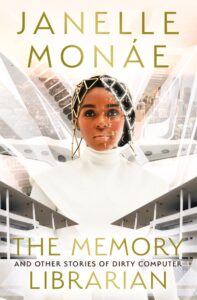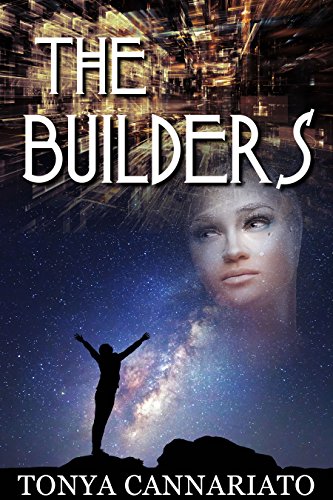As someone who enjoyed Janelle Monáe’s Dirty Computer album and accompanying film, I was thrilled to finally read The Memory Librarian: And Other Stories of Dirty Computer, an anthology of five stories cowritten by Janelle Monáe with Danny Lore, Yohanca Delgado, Alaya Dawn Johnson, Sheree Renée Thomas, and Eve L. Ewing. This book returns to the dystopian world of Dirty Computer to flesh out its totalitarian regime and the many ways the queer Black people living there resist it.
In New Dawn, a surveillance state seeks to erase so-called “dirty computers”: the marginalized people whose personal identity and expression is seen as “unclean.” Where this differs from reality is the technology the government has at their disposal, as they are able to routinely wipe people’s memories, dreams, and even whole personalities as a way of stamping out any and all resistance.
While I would have enjoyed each story individually, this anthology is more than the sum of its parts. I found the order of the stories effective at taking the reader through the world and concepts. The themes, worldbuilding, and beautiful writing make this anthology particularly cohesive, providing the immersion of a novel while still giving the reader a chance to pause and reflect. The fact that the book itself is a collaboration featuring the voices of several marginalized authors feels in keeping with the stories’ ethos. The format also allows the reader to dip into different pockets of the world and see how various individuals and communities are dealing with their place in society.
Each character, whether they have institutional power or not, has their own sort of power to wield and difficult choices to make about how and if they should do so. In many stories, this involves some sort of speculative twist, such as an item that can turn back time—but only once. The speculative elements aren’t generally explained—rather, they simply exist as part of the world and create restrictions and opportunities for the characters. Many of the stories also explore the consequences of assimilation; each character is trying to survive and protect others in their own way, but sometimes this requires them to erase their own sense of self to avoid letting the government do it by force, and that doesn’t always afford them the safety they seek.
This anthology is about reclaiming ownership of your experience—your memories, time, space, body, and dreams—from a society that declares it deviant. Art, love, and community are highlighted throughout as means of resistance and healing. Most of the characters are sapphic, and some are nonbinary and trans. While I personally can’t speak for what it’s like to read this book if you have never watched Dirty Computer, I think it could still be understood and enjoyed, though I definitely recommend experiencing both.
Content warnings: police brutality, forced institutionalization, manipulation, racism, homophobia, transphobia (including TERF ideology), misogyny, and classism.


Leave a Reply